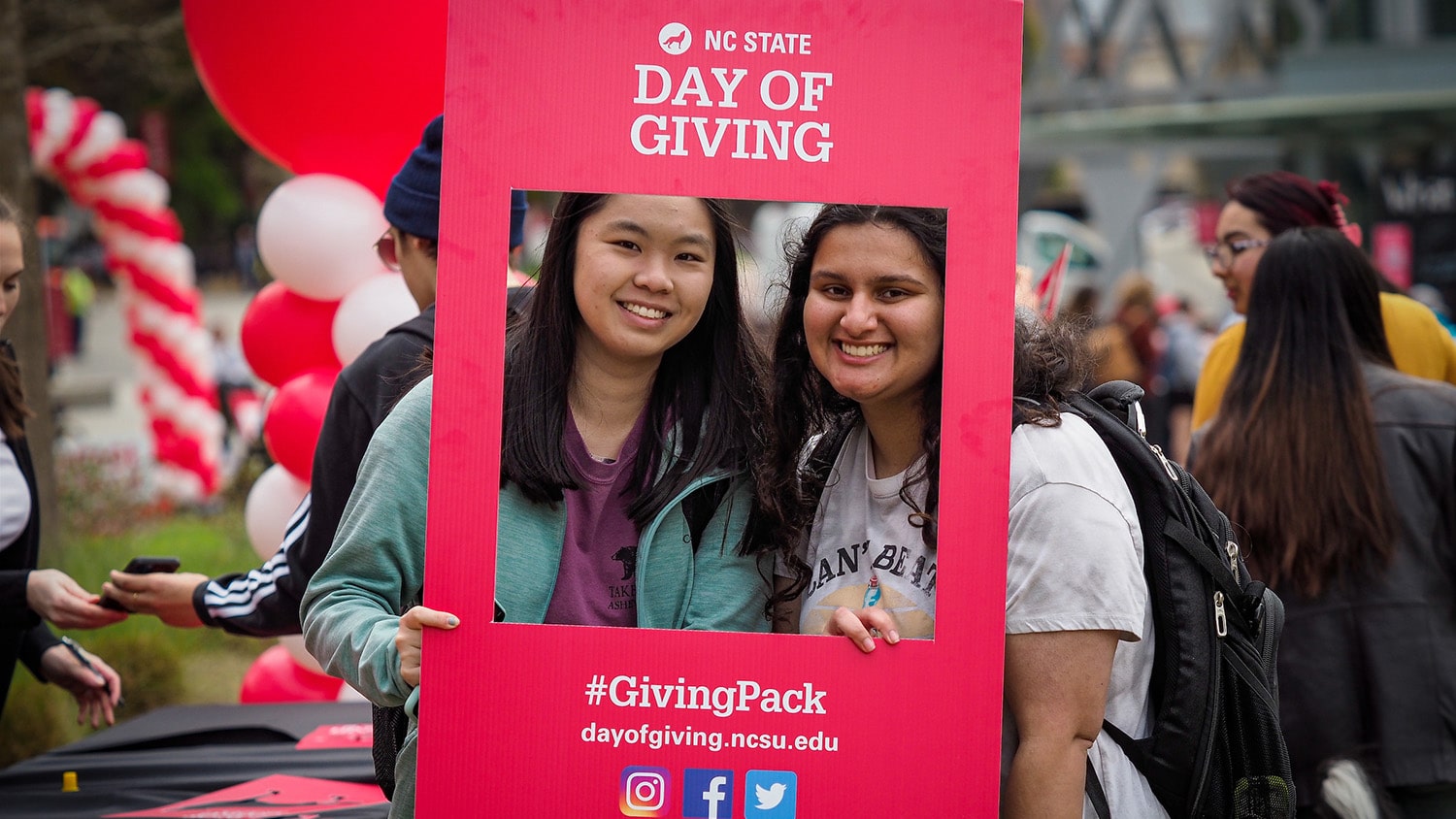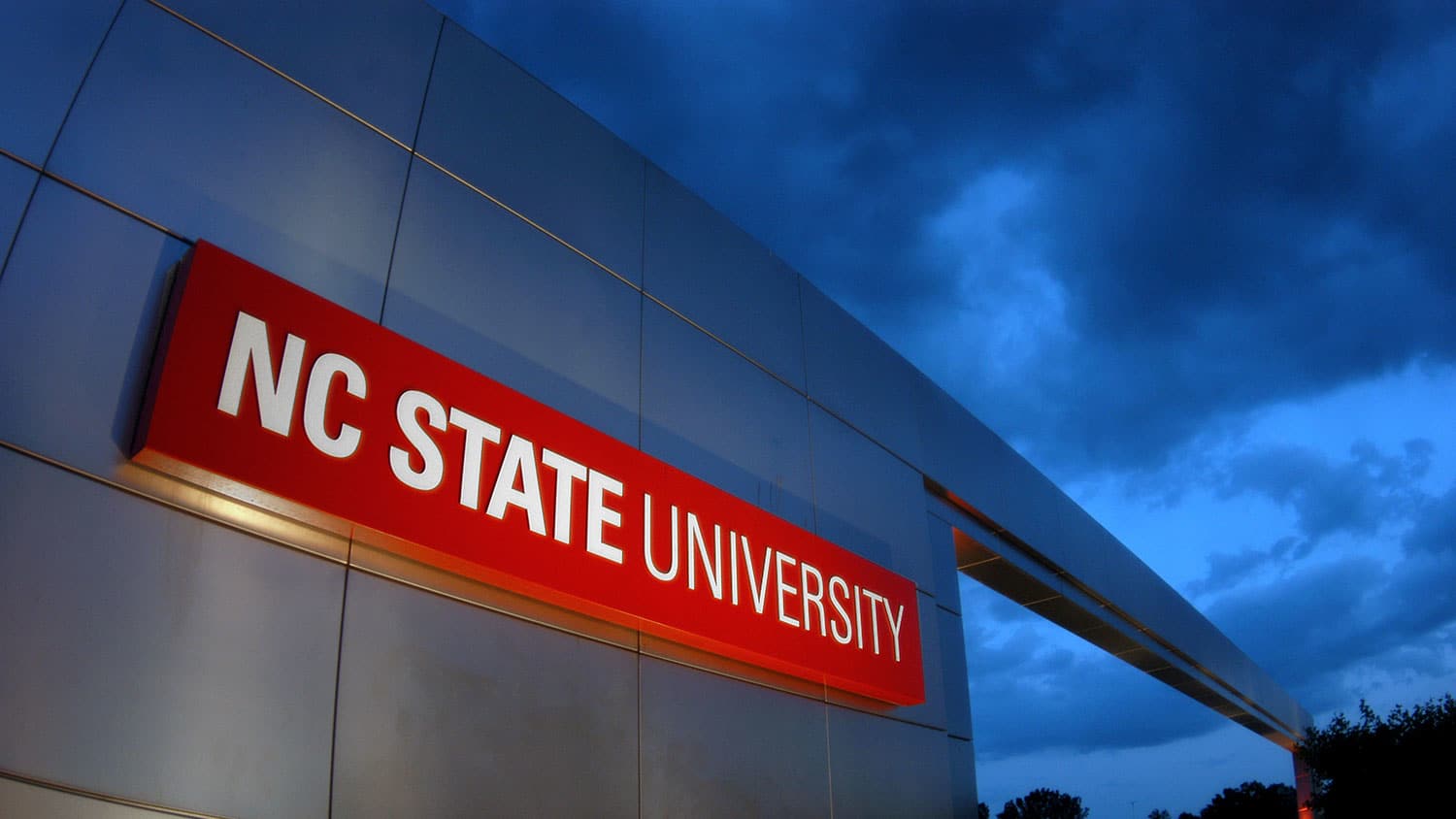Darwin Day: Evolution in Action
NC State biologists engage the public to celebrate the famed naturalist.
Step right up!
On Saturday, Feb. 15, a team of enthusiastic biologists from NC State encouraged visitors young and old attending Darwin Day festivities at the North Carolina Museum of Natural Sciences to participate in a beanbag toss game.
But this wasn’t your typical beanbag toss.
Rather than using square-shaped bags of identical sizes, visitors were given pear-shaped beanbags of six different sizes (ranging from the size of a lime to the size of a small cantaloupe) and were instructed to toss the “pears” through a pear-shaped hole.
Players were informed that only “pears” passing through the hole would live on to contribute pears to the next generation. After each turn, players added their data, the successful pear sizes, to a real-time bar graph and were asked to make predictions about what we might expect the next generation to look like.
The goal of the game – named “Pear Pressure” and designed by Dr. Jennifer Landin, teaching assistant professor of biological sciences – was to demonstrate the process of natural selection, a key mechanism in the process of evolution.
“People of all ages really enjoyed playing Pear Pressure,” Landin said. “And they got it. They walked away with a better idea of how evolution works. My hope is to write-up a formal lesson plan and ‘construction’ guide so that other educators can use this game, be it in their classroom or at a museum or science center as we did.”
Pear Pressure wasn’t the only activity sponsored by the Department of Biological Sciences at the Museum’s annual Darwin Day event. Four graduate students stepped into the spotlight of the Daily Planet Theatre to share their research and its connection to evolution in a series of flash talks.
In their ten-minute presentations, the students – Magdalena Sorger, Emily Moore, Kate Coyle and Khai Button – covered the breadth of evolutionary research in biological sciences, from evolution on islands to the evolution of behaviors, from ants to fish to living dinosaurs.
To prep for their public debut, the grad students met with Holly Menninger, director of public science for Your Wild Life, for a brief training session on science communication.
“I was so proud of the students. Their passion for research – and sharing it with a broader audience beyond the scientific community — was so apparent in their flash talks,” Menninger said. “They worked hard to make their research accessible to the public and that preparation really showed. Hopefully this experience will be something they carry with them into their professional scientific careers.”
Special thanks to Pear Pressure volunteers: Megan Serr, Alice Lee, De Anna Beasley, Nicole Carns, Jennifer Landin and Holly Menninger.
- Categories:


